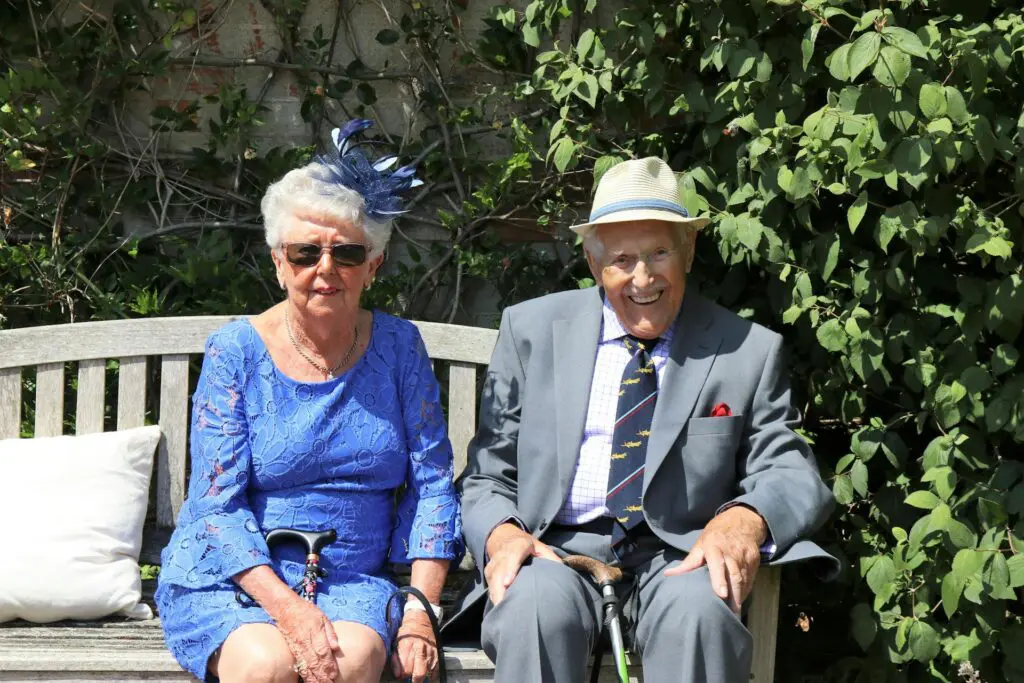Engaging in regular exercise is crucial for seniors' physical and mental well-being. Chair exercises, along with doing the prescribed exercises from a physical therapist, can significantly aid in recovery and improve quality of life. However, seniors often lack motivation to perform these exercises on their own. Partnering with a caregiver can make exercise routines more enjoyable and effective. Let’s explore the importance of exercise for seniors, the role of physical therapy in recovery, the benefits of chair exercises, and how caregiver support can enhance motivation and outcomes in Reno, NV.

Regular exercise is essential for seniors to maintain mobility, strength, and overall health. It helps reduce the risk of chronic diseases, improves mood, and enhances independence. Chair exercises are a safe and effective way for seniors to stay active without risking injury.
Chair exercises can be performed while seated, making them accessible for seniors with limited mobility or balance issues. These exercises help improve circulation, flexibility, and muscle strength, contributing to better overall health. Regular participation in chair exercises can lead to increased energy levels, reduced pain, and improved mental clarity.
Physical therapists provide tailored exercise programs to address specific health issues and recovery goals. These exercises are designed to improve mobility, strength, balance, and function. Adhering to these programs is critical for optimal recovery, yet many seniors struggle with motivation and consistency.
Physical therapy plays a vital role in helping seniors recover from injuries or surgeries, manage chronic conditions, and maintain independence. Therapists work closely with patients to develop personalized exercise plans that address their unique needs and capabilities. By following these plans, seniors can achieve significant improvements in their physical health and quality of life.
Chair exercises are versatile and can be performed safely by seniors with varying levels of mobility. These exercises help enhance flexibility, strength, and cardiovascular health. They are particularly beneficial for those who may have difficulty standing or walking for long periods.
Chair exercises can include a variety of movements such as seated marches, leg lifts, arm circles, and gentle stretches. These activities can help improve joint mobility, increase muscle tone, and boost cardiovascular fitness. Additionally, chair exercises can be easily modified to suit individual needs and abilities, making them an excellent option for seniors at all fitness levels.
Having a caregiver as an exercise partner can significantly boost a senior's motivation to stay active. Caregivers from Help At Home Senior Care in Reno, NV, can assist with physical therapy exercises and chair routines, making the sessions more enjoyable and ensuring that the exercises are performed correctly and consistently. This partnership not only enhances physical health but also provides emotional support and companionship.
Caregivers can help seniors set realistic exercise goals, provide encouragement, and ensure that they adhere to their physical therapy routines. By making exercise a shared activity, caregivers can transform it from a chore into a fun and engaging experience. This approach not only improves adherence to exercise programs but also strengthens the bond between seniors and their caregivers, leading to better overall well-being.
If you are seeking effective strategies and services to help your elderly parents stay active and adhere to physical therapy routines, consider reaching out to Help At Home Senior Care in Reno, NV. Contact us for a consultation to explore personalized care solutions that include support with chair exercises and physical therapy routines. Our team is here to support you and your loved ones every step of the way.
Understanding the impact of nutrition on cognitive health has never been more critical, especially in the context of dementia care in Reno-Sparks. As we delve into the significance of diet in managing dementia, it becomes clear that what we eat does more than just fuel our bodies; it nourishes our brains and can significantly influence cognitive function and overall well-being.

Emerging research highlights the protective effects of certain dietary patterns, particularly the Mediterranean and MIND diets, against cognitive decline and dementia. Rich in fruits, vegetables, olive oil, and fish, these diets boast anti-inflammatory and antioxidant properties that not only support physical health but also cognitive resilience (The BMJ) (National Institute on Aging). By incorporating these nutrient-dense foods into daily meals, individuals may lower their dementia risk and slow cognitive decline, emphasizing the importance of dietary choices in maintaining brain health.
While the benefits of specific nutrients like DHA, found abundantly in fish, have been debated, there's promising evidence to suggest that DHA supplementation could improve clinical dementia ratings and mitigate hippocampal atrophy, particularly in the early stages of cognitive decline (The BMJ). This highlights the nuanced role of nutrition in dementia care, where the effectiveness of certain supplements may vary based on an individual's cognitive status and overall diet.
One fascinating area of research is the role of ketones in supporting brain health. With aging and conditions like Alzheimer's disease leading to a decrease in brain glucose uptake, ketones offer an alternative energy source that can help maintain cognitive function (The BMJ). Diets that increase ketone levels, such as ketogenic diets, are being explored for their potential to slow the progression of Alzheimer's disease, offering hope for a dietary approach to brain energy rescue.
Observational studies underscore the connection between adherence to brain-healthy diets and a reduced risk of Alzheimer's, along with a slower rate of cognitive decline (National Institute on Aging). However, the effectiveness of individual foods, vitamins, and supplements in preventing or treating dementia remains an area requiring further research. This uncertainty calls for a balanced diet focused on known brain-healthy nutrients while awaiting more definitive evidence.
Recognizing the critical role of nutrition in cognitive health, leading dementia trained caregivers, like Help At Home Senior Care in Reno-Sparks, can assist families in making dietary changes to support seniors' cognitive function and overall well-being. By focusing on brain-healthy foods and personalized nutrition plans, caregivers help prepare foods that can ensure that seniors receive the best possible support for their cognitive health.
For families and caregivers, understanding the link between nutrition and dementia care in Reno-Sparks provides a powerful tool in supporting their loved ones. By assessing and adjusting dietary habits to include more brain-healthy foods, and consulting healthcare providers for personalized advice, families can actively contribute to their loved ones' cognitive well-being.
The connection between nutrition and cognitive health in dementia underscores the need for a holistic approach to care that includes dietary management as a core component. By prioritizing nutrition, trained in-home caregivers with Help At Home Senior Care Reno-Sparks can offer those facing dementia a better quality of life and a brighter outlook on their cognitive journey.
Dementia is a journey that no one chooses, yet many families find themselves navigating its complex path. Understanding the progression of dementia and the corresponding care needs at each stage can be a beacon of light for those feeling lost in the darkness of uncertainty. This guide aims to illuminate the stages of dementia, offering insight into how care requirements evolve, thereby assisting families in making informed decisions about their loved ones' care.

The journey through dementia often begins subtly, with mild symptoms that may easily be mistaken for normal signs of aging. Memory lapses, difficulties with problem-solving or language, and slight changes in mood or behavior mark this early stage. Individuals may still maintain a degree of independence, yet these initial changes signal the need for a supportive framework that accommodates future care needs. Monitoring and planning become crucial, laying the groundwork for navigating the path ahead.
As dementia progresses to the middle stages, the signs become more pronounced. Memory loss deepens, confusion may occur even in familiar settings, and completing daily tasks independently becomes challenging. This stage signifies a pivotal point in the care journey, necessitating adjustments to the living environment to ensure safety and comfort. The role of caregivers becomes more involved, focusing on providing support for daily activities and managing behavioral changes with patience and understanding.
In the late stages of dementia, individuals experience a significant decline in cognitive and physical abilities. Communication becomes difficult, and recognizing loved ones may no longer be possible. At this stage, around-the-clock care is essential, emphasizing the importance of compassion and understanding. The focus shifts towards ensuring the dignity of the individual, with support for mobility, hygiene, and nutrition taking precedence.
Throughout the journey of dementia, the care needs of individuals will evolve. Early stages may require minimal adjustments, but as the condition progresses, more comprehensive care solutions, such as specialized dementia intensive in-home care services, become necessary. Engaging with healthcare professionals like Help At Home Senior Care to explore the best care options for each stage can help families ensure their loved ones receive the quality care they deserve.
For families embarking on the dementia care journey, knowledge is power. Understanding the stages of dementia and anticipating how care needs change empowers families to make decisions that enhance the well-being of their loved ones. Help At Home Senior Care in Reno stands ready to guide families through these decisions, offering adaptable care solutions tailored to the unique needs of each individual.
Navigating the journey of dementia is undoubtedly challenging, but with the right information and support, families can navigate this path with confidence and compassion. By recognizing the signs, adjusting care as needed, and partnering with professionals, families can provide their loved ones with the dignity, respect, and quality of life they deserve at every stage of their journey.
Dementia, a complex condition affecting millions worldwide, presents unique challenges not only to those diagnosed but also to their families. As we navigate these challenges, the need for specialized dementia caregivers becomes increasingly apparent. At Help At Home Senior Care in Reno, we understand these challenges intimately and offer compassionate, expert care tailored to meet the individual needs of each client.

Central to the philosophy of specialized dementia care is the creation of personalized care plans. These plans are crafted with a deep understanding of each patient's history, preferences, stage of dementia, and individual needs. By focusing on the person behind the diagnosis, we ensure that our care is not only effective but also imbued with respect and recognition of each individual's life story and identity. This approach allows us to provide a level of care that goes beyond basic needs, fostering a sense of belonging and respect.
Another pillar of specialized dementia care is the emphasis on cognitive engagement through activities designed to stimulate the mind and soul. At Help At Home Senior Care, we offer activities geared toward the senior's particular interest as well as memory stimulating games. These activities are not only enjoyable but also crucial in stimulating cognitive functions, providing a sense of joy, purpose, and connection. They are tailored to engage our patients at all stages of dementia, ensuring that everyone can find something that resonates with their interests and abilities.
The heart of our care lies with our trained staff, whose expertise and dedication are unparalleled. Understanding the complexities of dementia, they are equipped to provide a safe, nurturing environment that minimizes confusion and fosters well-being. Our staff are not just caregivers; they are companions who build trust and form genuine connections with all of the patients, ensuring that their emotional and physical needs are met with compassion and professionalism.
For families navigating the complexities of caring for a loved one with dementia, specialized in-home caregivers offer a beacon of hope. We encourage you to explore the options available, particularly the personalized, compassionate care provided by Help At Home Senior Care in Reno. By simply reaching out and scheduling a consultation, you can learn more about how we tailor our care to meet the unique needs of every one of our patients, ensuring they live a life full of dignity, joy, and connection.
As we continue to face the challenges of dementia together, the role of specialized in-home caregivers becomes ever more critical. By choosing a company that emphasizes personalized care plans, engaging activities, and skilled staff, families can ensure that their loved ones receive the compassionate, expert care they deserve.
The journey from hospital discharge to home recovery is a critical time for seniors and their families. Navigating this transition effectively can significantly impact the senior's rehabilitation and overall well-being. This guide aims to provide families with practical advice on ensuring a smooth transition from hospital to in-home care for their elderly loved ones, with a special focus on the role of home care services in supporting recovery.
The discharge process marks the beginning of the transition from hospital to home care. Clear communication with healthcare providers is essential to understand the senior's post-discharge needs, including medications, therapy requirements, and necessary follow-up appointments. It's crucial to ask questions and ensure you have all the necessary information to continue care at home effectively.
Families should also inquire about any potential complications or warning signs to watch for, ensuring they are prepared to respond promptly if the senior's condition changes. This proactive approach helps in anticipating and addressing needs, reducing the risk of re-hospitalization.
Creating a safe, accessible, and comfortable home environment is paramount for a senior's return. Simple modifications, such as installing grab bars in the bathroom, ensuring ample lighting, and removing trip hazards, can make a significant difference in preventing falls and facilitating mobility.
Consider the layout of the living space and make necessary adjustments to accommodate medical equipment or mobility aids. The goal is to create an environment that supports the senior's independence while ensuring their safety and comfort.
Professional home care services can be invaluable in supporting seniors during their recovery at home. Skilled caregivers can assist with personal care needs, reminders, mobility support, and monitoring for health changes or complications. These services are tailored to the individual's specific needs, providing a level of personalized care that greatly enhances the recovery process. Our portal effectively facilitates the sharing of daily notes from caregivers with family members or healthcare professionals such as doctors, hospice staff, and home health aides.
This system keeps all involved parties well-informed about the caregiving process. Additionally, the portal provides access to the caregivers' schedule, detailing their upcoming visits with specific dates and times. Help At Home Senior Care in Reno offers such personalized care plans, ensuring that seniors receive the support they need to recover comfortably and safely at home. Their professional caregivers are trained to address the unique needs of each senior, making the transition from hospital to home care as smooth as possible.
The transition from hospital to home is not only physical but also psychological. Seniors may experience feelings of vulnerability, frustration, or loneliness during their recovery. Providing emotional support, facilitating social interactions, and encouraging engagement in enjoyable activities can significantly boost their morale and mental well-being. Families should ensure that their loved ones have opportunities for social engagement and activities that bring them joy, whether it's through visits from friends and family, engaging in hobbies, or participating in community events.
The transition from hospital to home care for seniors requires careful planning, communication, and support. By understanding the discharge process, preparing the home environment, utilizing professional home care services, and addressing emotional and social needs, families can ensure a smooth and effective transition for their senior loved ones. Help At Home Senior Care in Reno is here to support you through this process, offering personalized care plans designed to meet the unique rehabilitation and recovery needs of seniors.
Transitioning from a hospital stay back to the comfort of home requires careful planning and support, especially for our senior loved ones. Understanding the post-hospital care needs of seniors is crucial in ensuring their recovery and ongoing well-being. In this article, we'll delve into the common care requirements following hospitalization and how home care services, particularly those provided by Help At Home Senior Care in Reno, can meet these needs effectively.
The journey from hospital discharge to home recovery is a critical period for seniors. Ensuring a seamless transition involves coordination among healthcare providers, the patient, and the home care team. This collaboration is essential for maintaining continuity of care and adhering to the post-discharge plan. It's not just about getting back home; it's about making sure that the recovery process continues without interruption, reducing the risk of re-hospitalization.
Tailoring home care services to each individual's needs begins with a thorough understanding of their specific situation. Whether it's adjusting the home environment for safety or coordinating with medical professionals, every detail counts. Help At Home Senior Care specializes in creating a personalized care plan that addresses these pivotal aspects, ensuring a smooth transition for your senior family member.
Once at home, the need for a comprehensive assessment becomes apparent. Home care professionals play a vital role in identifying the specific requirements of seniors post-hospitalization. This assessment might include adherence to your doctor's physical therapy exercises and orders, the need for transfers and mobility assistance for increased safety from reinjury, and medication reminders.
Our portal enables seamless sharing of caregivers' daily notes with families or medical providers, including doctors, hospice, and home health services. This feature ensures that all parties are kept up-to-date on the care being provided. Additionally, the portal provides visibility into the caregivers' schedules, showing the specific dates and times they are expected to be present.
It's this level of personalized attention that sets specialized home care services apart. Help At Home Senior Care's team of professionals uses these assessments to craft care plans that not only aid in physical recovery but also support the overall health and happiness of seniors in their care.
Recovering at home often means needing assistance with daily living activities that many of us take for granted. Personal care support, including help with bathing, dressing, meal preparation, and mobility, plays a significant role in creating a conducive environment for recovery. These services not only cater to the physical needs of seniors but also uphold their dignity and independence during vulnerable times.
Moreover, the familiar surroundings of home, coupled with professional care, can significantly enhance the healing process. Help At Home Senior Care ensures that each client receives the respectful and compassionate assistance they deserve, making recovery at home a positive and comfortable experience.
Recovery isn't solely a physical process; the psychological and emotional aspects are equally important. Post-hospital care should include emotional support and opportunities for social and recreational activities. Companionship services, in particular, can help seniors cope with the emotional impacts of illness and hospitalization, offering not just care but a friendly presence and a listening ear.
Help At Home Senior Care places a strong emphasis on the holistic well-being of seniors, incorporating activities and support that cater to their emotional and social needs. This approach not only aids in recovery but also enhances the overall quality of life, making each day more enjoyable and fulfilling.
Understanding and addressing the post-hospital care needs of seniors is essential for their recovery and long-term health. Tailored home care services, like those offered by Help At Home Senior Care in Reno, provide the comprehensive support needed to navigate this critical phase successfully. If you're evaluating post-hospital care options for a senior family member, consider reaching out to Help At Home Senior Care for a personalized consultation. Together, we can ensure that your loved one's transition from hospital to home is smooth, supportive, and centered on their well-being.
